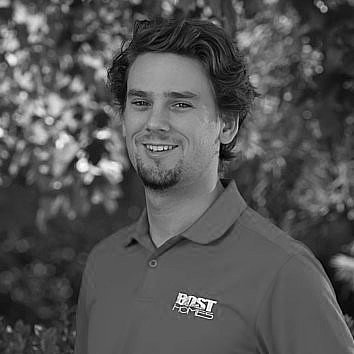
 Building a custom home is typically the most substantial investment of time and money our clients will ever make on a single endeavor. A truly custom home project can take anywhere from eight months to two years or more depending on the level of complication and preparedness. During homesite selection, design, and specification development, every decision has an opportunity cost – saying yes to one option will undoubtedly close doors on others. Additionally, it can be challenging to decide which options deliver the highest value to you and your family. All this said, it’s important to be prepared to avoid “paralysis by analysis” during construction, which can prove frustrating and expensive. Here are some crucial planning tips for a successful custom home design-build experience.
Building a custom home is typically the most substantial investment of time and money our clients will ever make on a single endeavor. A truly custom home project can take anywhere from eight months to two years or more depending on the level of complication and preparedness. During homesite selection, design, and specification development, every decision has an opportunity cost – saying yes to one option will undoubtedly close doors on others. Additionally, it can be challenging to decide which options deliver the highest value to you and your family. All this said, it’s important to be prepared to avoid “paralysis by analysis” during construction, which can prove frustrating and expensive. Here are some crucial planning tips for a successful custom home design-build experience.
 Select the right homesite. Consider the topography, orientation, soil composition, and tree makeup before purchasing a homesite. If a walkout basement is desirable, then a lot sloping toward the rear of the property is appropriate, whereas a flat lot is ideal for non-basement homes. Don’t assume that you can cheaply accommodate the house to the slope or drastically alter the topography of a lot – it’s easy to spend tens of thousands on earthwork and raised foundations. This can render a discounted sloping lot more expensive than better initial options in the long run. Southern sun exposure is another factor to consider: Where would you prefer low winter sunlight to enter? For energy conservation and coziness, winter sun through main living area windows is ideal (Don’t worry; modern windows shield the harmful sunrays). Lastly, peer beneath the earth if you can – drilling wells, digging foundations, and laying out a septic system is particularly difficult and expensive in rocky soils. Hiring a soil scientist during due diligence is worth it if there’s suspicion of poor drainage or shallow bedrock.
Select the right homesite. Consider the topography, orientation, soil composition, and tree makeup before purchasing a homesite. If a walkout basement is desirable, then a lot sloping toward the rear of the property is appropriate, whereas a flat lot is ideal for non-basement homes. Don’t assume that you can cheaply accommodate the house to the slope or drastically alter the topography of a lot – it’s easy to spend tens of thousands on earthwork and raised foundations. This can render a discounted sloping lot more expensive than better initial options in the long run. Southern sun exposure is another factor to consider: Where would you prefer low winter sunlight to enter? For energy conservation and coziness, winter sun through main living area windows is ideal (Don’t worry; modern windows shield the harmful sunrays). Lastly, peer beneath the earth if you can – drilling wells, digging foundations, and laying out a septic system is particularly difficult and expensive in rocky soils. Hiring a soil scientist during due diligence is worth it if there’s suspicion of poor drainage or shallow bedrock.
Work with a lender that offers construction loans. Lenders that provide construction-to-permanent loans are a great option for financing custom home projects. These loans allow you to lock in your rate and close on the land and home before construction begins. This means that you will be able to move in as soon as a certificate of occupancy is issued, and you can rest assured that releasing of funds won’t be the cause of any construction delays. Be realistic about how you use your home. What are your ideal goals for daily living? Drinking morning coffee on the screened porch and grilling by the pool, or reading a novel in the conservatory and trying new recipes in a gourmet kitchen? Of course, it would be nice to have it all and a movie theater, too, but the budget might disagree. It’s important to rank floor plan and outdoor living features based on your use and enjoyment of spaces so that you can decisively omit lower ranked items that aren’t budget-friendly.
Another option is to design your home with future expansion in mind. For example, pre-wire for a movie theater with plans to finish it five years later. Communicate often. During design, open communication about financial goals and constraints will enable a designbuild firm to hone in on a plan that fits your style and budget, hopefully curtailing any sticker shock at contract presentation. Throughout construction, frequent communication and questioning helps avoid mistakes and delays. If a design concept is not fully understood in a phone call or email, ask to meet on site to discuss and decide in person. It’s always cheaper and less frustrating to get it right the first time rather than to tear something out and rebuild it.
evan Bost is director of marketing and green initiatives at Bost Custom Homes, an award-winning custom building firm serving the Triangle. With thirty years of proven expertise, Bost Custom Homes designs and constructs custom residences with superior craftsmanship, a focus on health and sustainability, architectural authenticity, and structural integrity. To begin the conversation of your forever home, call 919-460-1983 or email info@bosthomes.com. Learn more at www.bosthomes.com or www.facebook.com/bostcustomhomes.